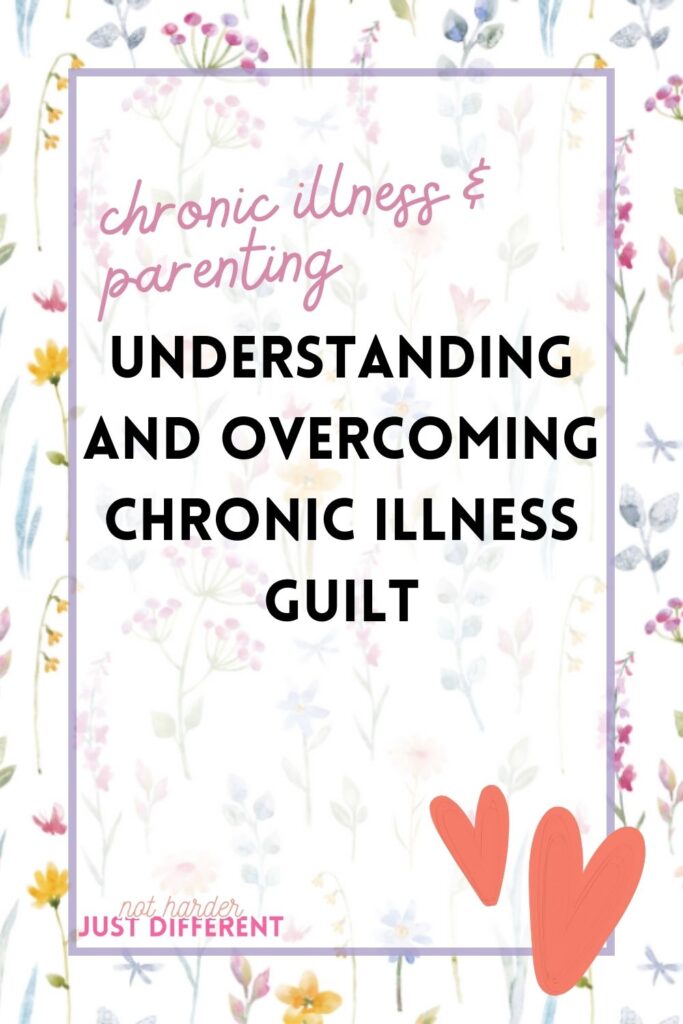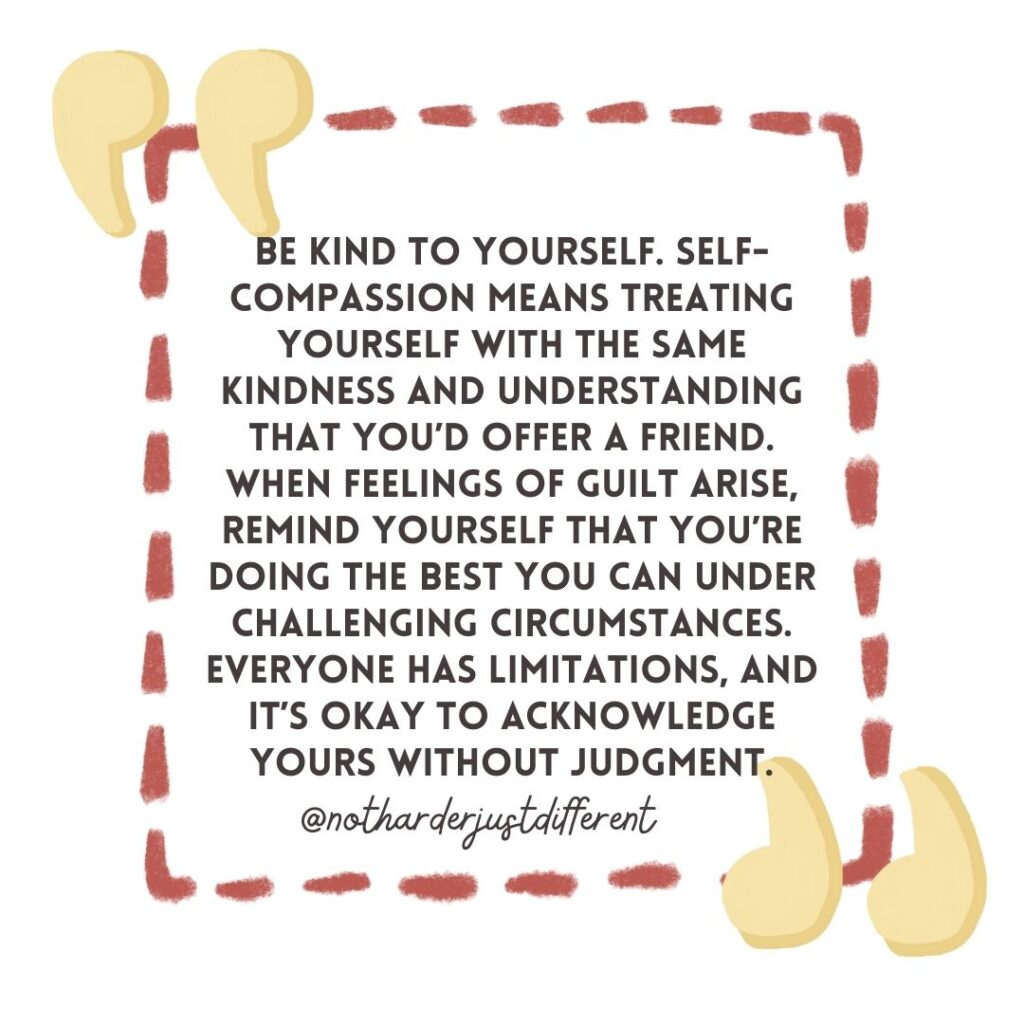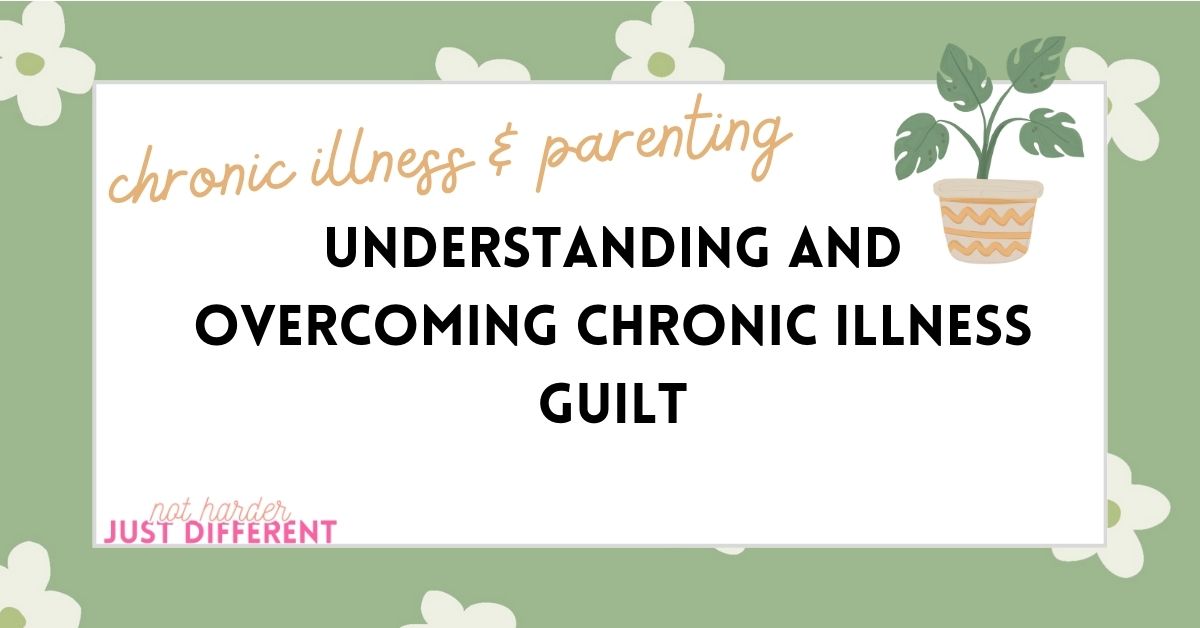Disclaimer: As a future Licensed Clinical Social Worker (LCSW) currently pursuing my master’s degree, I am passionate about sharing insights and information related to parenting, autism and homeschooling based on my personal experiences and research. However, the content shared on this blog is not intended to substitute professional advice, diagnosis, or treatment. Parenting is a deeply personal journey, and while I strive to provide valuable insights, every family and situation is unique. Readers are encouraged to consult with qualified professionals for personalized guidance tailored to their specific needs and circumstances.
If you’re living with a chronic illness, you might be all too familiar with that nagging feeling of chronic illness guilt. It’s tough, isn’t it? Juggling health issues, daily responsibilities, and trying to keep up with the demands of life can be overwhelming. Sometimes, it feels like you’re letting everyone down, even when you’re doing your best.
The guilt can sneak up on you in so many ways – missing out on activities with your kids, relying more on your partner or friends, or not being able to keep up with work. But here’s the thing: it’s okay. You’re not alone, and it’s possible to manage these feelings and find some peace.
Let’s dive into what chronic illness guilt is all about, why it happens, and most importantly, how you can start to overcome it. You deserve compassion and understanding, especially from yourself. Let’s chat about some practical ways to ease that guilt and focus on what really matters.

Understanding Chronic Illness Guilt
What is Chronic Illness Guilt?
Chronic illness guilt is that heavy feeling of regret or sadness because you can’t do everything you want or think you should. It’s when you feel like you’re letting others down or not meeting your own expectations because of your illness. This guilt can be really draining and adds to the emotional toll of managing a chronic condition. Recognizing it as a common experience among those with chronic illnesses is the first step in addressing it.
Why Do We Feel Guilty?
Guilt often stems from comparing ourselves to others or to our past selves before the illness. There’s this pressure to keep up with societal norms or personal standards, which can be unrealistic when dealing with a chronic condition. Understanding that your worth isn’t tied to your productivity or ability to perform certain tasks is crucial. This mindset shift can help alleviate some of the guilt.
Overcoming Chronic Illness Guilt

Embrace Self-Compassion
Be kind to yourself. Self-compassion means treating yourself with the same kindness and understanding that you’d offer a friend. When feelings of guilt arise, remind yourself that you’re doing the best you can under challenging circumstances. Everyone has limitations, and it’s okay to acknowledge yours without judgment.
Set Realistic Expectations
Adjust your expectations to match your current abilities. It’s important to set achievable goals that respect your health limitations. Celebrate small victories and progress, no matter how minor they seem. This shift in perspective helps reduce feelings of failure and guilt.
Communicate Openly
Talk to your loved ones about how you’re feeling. Open communication can foster understanding and support. Let them know about your limitations and what you can realistically manage. Often, they’ll be more understanding and supportive than you might expect, easing the burden of guilt.
Focus on What You Can Control
Direct your energy towards things you can influence. While you can’t control the illness, you can control how you respond to it. Finding joy in small, manageable activities can help shift focus from what you can’t do to what you can still enjoy and achieve.
Seek Support
Join support groups or seek counseling. Talking to others who understand your experience can be incredibly validating and comforting. Professional help, such as therapy, can also provide strategies to cope with guilt and manage the emotional aspects of chronic illness.
Practical Tips for Managing Daily Life
Prioritize Tasks
List your daily tasks and prioritize them. Focus on the most important ones and give yourself permission to let go of less critical tasks. It’s okay to delegate or ask for help with things that are too demanding.
Take Breaks
Incorporate regular breaks into your day to rest and recharge. Listen to your body and don’t push beyond your limits. Short, frequent breaks can help maintain your energy levels and prevent burnout.
Practice Mindfulness
Engage in mindfulness practices to stay present and reduce stress. Techniques such as deep breathing, meditation, or gentle yoga can help calm your mind and body. Mindfulness can also help you become more attuned to your needs and limits.
Establish a Routine
Having a consistent routine can provide structure and predictability. Even with flexibility built in for bad days, a routine can help manage your time and energy more effectively. It also creates a sense of normalcy and control.
Celebrate Achievements
Acknowledge and celebrate your achievements, no matter how small. Whether it’s completing a task or simply getting through the day, recognizing your efforts helps build a positive mindset. Reward yourself for your hard work and perseverance.
Chronic illness guilt is a heavy burden, but you don’t have to carry it alone. By embracing self-compassion, setting realistic expectations, and seeking support, you can start to lighten that load. Remember, you’re doing an amazing job managing your health and caring for your loved ones. Be kind to yourself and take it one step at a time. You’ve got this!

